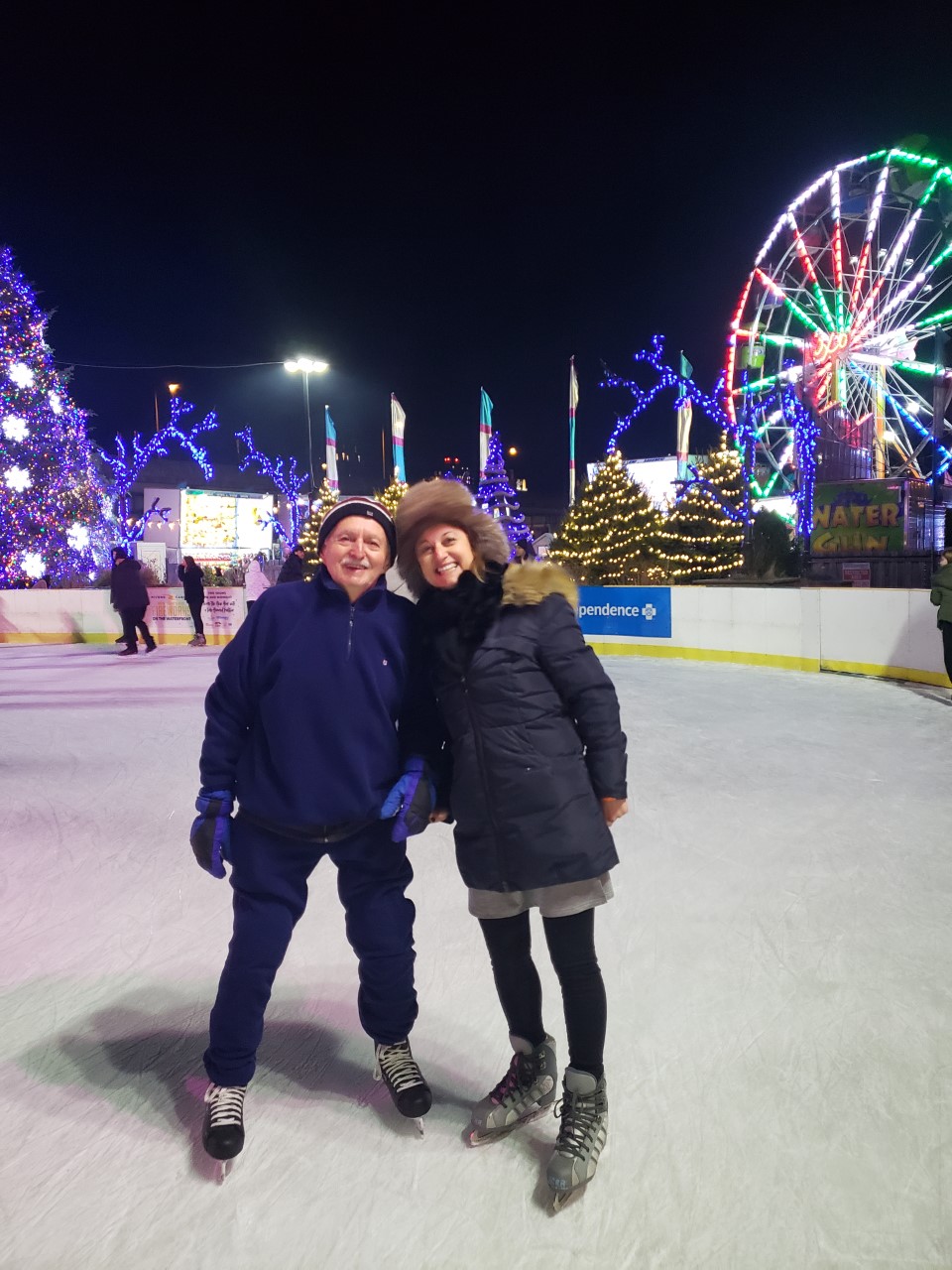What is it about childhood experiences that stay with us throughout our lives?
Growing up in the former Soviet Union, there were only two holidays that were not impacted by the Communist propaganda: birthdays and celebrations for the new year. Since I was born in the winter, this particular season held double joy and excitement.
Long before I discovered the lights of the Chanukah candles, this cold time of the year was marked by citywide ice-skating rinks and snow that covered my birth city of Saratov. My father and I spent many cold evenings in the local park, skating side by side, enjoying the crisp air on our faces. As I stepped onto the ice, I held on to my father’s hand until I balanced and could successfully glide ahead.
As I grew older, the same element that helped propel me forward became an unwelcome obstacle. Winter weather often creates impediments to my routine activities, and my childhood fascination with ice and snow became a long-gone memory.
The Maharal explains that the summer months—from Passover until Sukkot—have the spiritual force of light, while the season after the High Holidays—the fall and winter months—has the force of darkness. In order to conquer the feelings of melancholy and apathy that winter brings, we must strengthen our connection to Torah and mitzvot. The long evenings can be an opportunity to look within, reach beyond our limits, and melt away the coldness in our hearts.
Similarly, while exploring the importance of sleep, the Rebbe explained that seemingly one would be able to accomplish a lot more if he did not need to lie idle for many hours a night. However, if there was no sleep, there would be no separation between today and tomorrow. Thus, it would take away from the opportunity to renew ourselves, to free ourselves from yesterday and build a new, better self. Sleep offers a window for renewal, hope, and growth, just as the change of seasons do.
So, during the winter months, when I feel overwhelmed by the frozen world around me, I remember my childhood skating rink. I was determined to stay firm on my feet and learn to maneuver my way in a challenging environment.
I try to remember that each winter is likewise an opportunity for me to triumph over spiritual forgetfulness, and find new depth and competence on the slippery surface of life. This task is both challenging and rewarding.
The Talmud teaches, “If a person says ‘I have worked hard but have not found [success],’ don’t believe him. [If a person says] ‘I have not exerted myself, and I have found [success],’ don’t believe him. [If he says] ‘I gave it my all and I have found [success],’ believe him!” (Megillah 6b).
This year before my birthday, my father and I went skating at Penn’s Landing in Philadelphia. Just like 35 years ago in Saratov, we glided onto the translucent surface, holding each other for balance. And just like in my childhood, with time and perseverance, the slippery ice gracefully propelled us forward.
Before we knew it, we were confidently gliding forward, circle after circle, transforming obstacles into opportunities, one stride at a time.
My thoughts today are: How can I use these cold and dark winter months to spiritually soar?
Is the Freezing Snow Getting to You? – Reflections (chabad.org)

